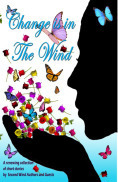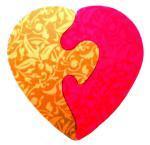Pat Bertram's Blog, page 274
April 12, 2012
What is the Price of Creativity?
 The book business continues to dishearten me. The recent pursuit by the government against the major publishers and Apple on antitrust charges gives Amazon a virtual monopoly with the ability to charge whatever prices they want, eternally undercutting the competition. This also gives Amazon control of the royalties the authors earn, which is little enough to begin with, and makes self-publishing on Amazon an even more attractive option. Which gives Amazon even more control.
The book business continues to dishearten me. The recent pursuit by the government against the major publishers and Apple on antitrust charges gives Amazon a virtual monopoly with the ability to charge whatever prices they want, eternally undercutting the competition. This also gives Amazon control of the royalties the authors earn, which is little enough to begin with, and makes self-publishing on Amazon an even more attractive option. Which gives Amazon even more control.
Perhaps the publishers were charging more than people would have liked, but frankly, as much as I hate the major publishers, there is more at stake here than simple manufacturing costs. Admittedly, it doesn't cost anything beyond an initial investment to produce an ebook, but what about the value of the contents, the creative output, the artistry of the writing itself? No one complains that the painting they bought for $100,000 is overpriced even though it merely cost the artist a few dollars worth of paint and canvas, so why do readers begrudge writers compensation for their creativity? What didn't exist now does. Shouldn't there be value to that?
And that is the real issue here. Value.
Readers don't seem to care that the art of writing no longer has any value. They can get an endless supply of books free or close to free. They seem to believe that good writing will rise to the top, that bad writing will simply fade away, but that is not true. What sells is adequate writing, writing that is just good enough to get the job done. Some good books might find a readership, but if they don't, it does not negate the inherent value of the book. Nor does a barely adequate book become a good book simply because it sells.
Huge numbers of people shrug and say, "Ebooks are here, get over it." They are thrilled at the disappearance of any "elitism" that might once have been conferred upon published authors. Anyone can write. Anyone can publish. What everyone believes they can do, no one values. People are reading more now because of the low cost and ease of ebooks, but are they reading anything of value, are they becoming better human beings because of the books, or are they simply passing time?
I was shocked the first time I heard that books are considered entertainment, that books compete with movies and video games for entertainment dollars. Books are more than entertainment. Or they should be. The written word becomes part of us. What was conceived in one mind comes to life in another. It's a connection between two human beings who have never met. Isn't that of greater consideration than a fight over entertainment dollars? Through books you can travel to other places in the world, and you can travel to other places in your own mind. You can experience feelings, ideas, philosophies that you never knew you had. Isn't that more than mere entertainment?
I'm not sure I want to participate in a book world that places such a small value on the written word. I've been trying to find a reason to write again, but frankly, I don't I see the point.
Tagged: Amazon, books as entertainment, does good writing rise to the top, entertainment dollars, value of ebook








April 11, 2012
My Short Story "The Willow" Has Been Anthologized!
My short story, "The Willow," has been published in the Second Wind anthology Change is in the Wind. Reviewer Sheila Deeth says: "Pat Bertram's 'The Willow' haunts with its beautiful portrayal of love and loss."
I hope you will read this story. It did what I wanted, capturing the essence of timeless love and the new life that comes from loss. You don't even have to buy the book. I'll let you download the anthology this week for free! To download the ebook, go to https://www.smashwords.com/books/view/146269, pick the format of your choice, and then use coupon code HG57Y when you purchase the book. Your cost should be $0.00 (Offer expires April 17, 2012)
Excerpt from "The Willow":
One summer day, shortly after their twenty-fifth wedding anniversary, Gracie was curled on the couch, proofing the catalog for an exhibit of the new modernists, when Scott trudged into the room. Gladness at the sight of him sparked a smile as always, but something in his manner . . . a hesitation . . . made her smile fade.
"Do we have any plant food?" he asked, his words slurred.
"There should be some in the garage." She peered at him. "Are you okay?"
"I think I'm dying."
Gracie bolted upright, heart pounding so hard it shook her body. "What?"
"A little plant food should help." Scott started to walk away.
"Wait! Just wait a minute, Scott."
He glanced over his shoulder, a questioning furrow between his brows.
"You can't just drop a bomb like that and then leave as if nothing happened," she said.
"What bomb?"
She stared at him for a second, unable to speak, but finally managed to croak out the words. "You said, 'I think I'm dying.'"
"I didn't say you were dying."
"Not me. You. You said you were dying."
"I said the tree was dying. You never listen, do you?"
The chill in his voice froze her. All she could do was sit immobile on the suddenly uncomfortable couch and watch him. He stumbled as he left the room, and his shoulder hit the doorjamb.
Fear, like fury, flashed through her body. Something was wrong with Scott. Terribly wrong. In all their years together, he'd never spoken to her in such a tone. She hadn't even known he had such a tone. And that stumble? He was the most graceful man she'd ever met, walking on the high beams of his buildings as if they were earth-bound sidewalks.
She chased after Scott and found him staring up at the canopy of the globe willow. Golden leaves sprinkled down on him as if it were fall instead of just beyond spring.
"Do we have any plant food?" he asked, warmth and worry in his voice.
Gracie put a hand to her mouth to hold back a dry sob. Didn't he remember that he'd already asked her about the plant food? "Maybe it's time for you to get a check-up," she said.
"Me? I feel good." He grinned at her and held out his arms. "How about a little stress release, love? That's all I need to make me feel great."
Blurb from Change is in the Wind:
 The assignment was simple: submit a short story dealing with change. The results were astonishing, engaging, and incredibly varied. The stories compiled in this volume range from taut action drama, to stealthy intrigue, to enthralling spirituality, to tangled relationships, to timeless love renewed—or lost, to angelic second chances. No two of the tales are remotely similar, and yet they are linked in remarkable ways. Each story is tied it to all the others in the anthology with two exquisite threads. The first constant theme is redemption; in each case there is a transformation, often painful, that brings new beginnings, new possibilities and revitalized life. The second theme is love—timeless and true—expressed in a multitude of ways, but unfailing in bringing hope and newness. Change in the Wind is an extraordinary collection of marvelous stories from gifted, eclectic writers who draw us into their worlds and leave us wanting more.
The assignment was simple: submit a short story dealing with change. The results were astonishing, engaging, and incredibly varied. The stories compiled in this volume range from taut action drama, to stealthy intrigue, to enthralling spirituality, to tangled relationships, to timeless love renewed—or lost, to angelic second chances. No two of the tales are remotely similar, and yet they are linked in remarkable ways. Each story is tied it to all the others in the anthology with two exquisite threads. The first constant theme is redemption; in each case there is a transformation, often painful, that brings new beginnings, new possibilities and revitalized life. The second theme is love—timeless and true—expressed in a multitude of ways, but unfailing in bringing hope and newness. Change in the Wind is an extraordinary collection of marvelous stories from gifted, eclectic writers who draw us into their worlds and leave us wanting more.
Second Wind Publishing is starting a new short story contest. Perhaps you will be included in the next anthology! For information about this new contest, click here: Holiday short story contest
Tagged: Anthology, change is in the wind, Contest, ebook giveaway, Second Wind Publishing, short stories, The Willow








April 10, 2012
Help! I Need Blog Talk Radio Topics
I'm scheduled to be interviewed on a blog radio show in a couple of weeks. I'm not sure how that happened because I never actually said I'd do it. Still, there it is. Or rather, there I will be. The problem is, they want me to send them a list of five things I would like to discuss about me and my work, and I don't have anything in particular I'd like to say. (Seems strange, doesn't it? It's their show, so obviously they have some sort of agenda. I have no agenda, yet I have to supply the questions.)
So, I'm asking you: what topics should I send them? Is there anything about my books or writing you'd be interested in hearing about? Any noteworthy questions you were asked in an interview that you'd like to pass along? Any questions about books or writing that haven't been asked ad nauseum? Anything?
Tagged: blog radio topics, blog talk radio, interview quesions








April 9, 2012
What Type of Person Experiences Profound Grief?
 Everyone experiences grief in different ways, yet there are patterns to grief that help us survivors understand and connect to one another. For example, when one loses a life mate, most of us experience the shock of the loss, the pain of separation, the physical reactions, the bewilderment at the wreckage of our lives. Then, as the first year progresses, we have to deal with all the firsts such as the first birthday and first Christmas without, and we have to deal with the anniversaries such as a wedding anniversary and the anniversary of his death. During the second year, we come out of the emotional fog to a greater understanding that he is truly gone and we will have to live the rest of our lives without him. There is generally an excruciating upsurge of grief around eighteen months, which often comes as a shock because while consciously we might not consider that a milestone, apparently our psyches do. By the fourth year, most of us will have found a renewed purpose, a deeper acceptance, or a new appreciation of life. Some of us might even find happiness or new love.
Everyone experiences grief in different ways, yet there are patterns to grief that help us survivors understand and connect to one another. For example, when one loses a life mate, most of us experience the shock of the loss, the pain of separation, the physical reactions, the bewilderment at the wreckage of our lives. Then, as the first year progresses, we have to deal with all the firsts such as the first birthday and first Christmas without, and we have to deal with the anniversaries such as a wedding anniversary and the anniversary of his death. During the second year, we come out of the emotional fog to a greater understanding that he is truly gone and we will have to live the rest of our lives without him. There is generally an excruciating upsurge of grief around eighteen months, which often comes as a shock because while consciously we might not consider that a milestone, apparently our psyches do. By the fourth year, most of us will have found a renewed purpose, a deeper acceptance, or a new appreciation of life. Some of us might even find happiness or new love.
And yet . . . not everyone who loses a mate goes through such a profound or protracted grief process. For some, their religious convictions are so strong that after a few weeks of grief, they skip immediately to the final stage of renewed purpose or appreciation of life. Some people with dependent children or a dependent parent also experience a short period of grief and then find a renewed focus on and commitment to those who need them. Some people seem to be able to slough off their grief and go searching for a new mate within a few months. It could be these people couldn't stand the loneliness any more and wanted to feel alive again. Or maybe they didn't feel much grief other than a sense of loss. There are hundreds of thousands of people who are incapable of truly connecting to another human being, who are incapable of feeling deep emotions.
So what type of person experiences such profound grief that it rocks them to the very core of their being? To a certain extent, it has to do with the strength of the commitment to and the connection with another person. Obviously, if a person is in a marriage for money, and their spouse dies leaving them what they want, the person would not feel the same grief as someone who had a deep emotional commitment to their mate.
Profound grief also has to do with how complicated the relationship is and if there were unresolved issues. When you are both alive, your relationship is always in the present day, so you basically just have to deal with what is going on at that time. When one person dies, the relationship is always in the past, and so you have to deal with the whole thing, decades of good and bad, ups and down, connections and disconnections, understandings and misunderstandings. It can be overwhelming.
And profound grief has to do with whether you're an extrovert or an introvert. Extraverts generally have other people in their lives they can rely on for friendship and support. Introverts, for the most part, don't have an extended support system. Theirr mates were their support system, thieir friend, the one person who understood them. (I'm not saying extroverts don't experience profound grief, just that they might not experience it in the same way that an introvert might.)
The difference between introverts and extraverts is not so much how shy or outgoing you are, but how your mind works. Introverts prefer the inner world of their own mind. Extroverts prefer the outer world of sociability. Introverts get overwhelmed during social occasions because there is so much information to process. Extroverts get bored with their own minds and need the external stimuli. This could explain why some people can work through grief quicker than others can. The introverts need to process all the permutations of their grief, which could take years, while extroverts might not be aware of (or care about) all the implications of their grief, might not feel any need to process the information beyond what it would take to survive it. A therapist friend wrote me, "We introverts are quieter souls; process differently; miss little in the inner and outer world…more grist for the mill; our friends tend to be introverts…birds of a feather….; Frankly imho I believe we feel more and feel more deeply…"
Tagged: extroverts and grief, grief at eighteen months, grief process, introverts and grief, profound grief, who experiences grief








April 8, 2012
Grateful to be an Author
 It seems a bit paltry to have a single holiday to give thanks, so I've added an extra day (today) to be grateful for my blessings.
It seems a bit paltry to have a single holiday to give thanks, so I've added an extra day (today) to be grateful for my blessings.
I am grateful for my online friends and for my fans. (Odd to think I actually have fans!) I am grateful for the readers of my blog, who never fail to offer support and suggestions. I am especially grateful for my publisher, who understands my books better than I do. But I am most grateful for being the author of my novels rather than being a character in them.
It's an author's responsibility to put her characters through as many traumas as possible. Readers want to worry about characters, they want to see how characters act when faced with horrendous conditions and dilemmas, and they want the characters to go bravely where they themselves would never go. As an author, I might give readers what they want, but frankly, I would never choose to be in any of the situations my characters encounter. And, although I am trying to be bold and brave in my own life, I will never be as bold as my characters. Nor do I want to be.
When Mary Stuart, the hero of Daughter Am I discovers she inherited a farm from recently murdered grandparents she never knew she had, she becomes so obsessed with finding out who they were, why someone wanted them dead, and why her father claimed they had died before she was born, that she ends up driving halfway across the country with strangers. That these strangers are all in their eighties might have put her at ease, but when she finds out about their less than lawful pasts, it still doesn't deter her from her goal. In fact, she heads for Leavenworth, hoping to talk to Iron Sam AKA Butcher Boy AKA Samuel Bornstein, a hit man for the mob who might have known her grandfather.
Um, yeah. Like that's something I would do! I am grateful that I have never had to deal with such a situation. When Mary discovers that one of the aged crooks is carrying an illegal weapon, she confiscates it and tucks it in her purse. Forgetting for the moment that I don't carry a purse, having a gun tucked away in a handbag where it might accidentally go off is not high on my list of priorities. (Though I would be interested in firing a gun just once to see how it would feel. Strictly for research purposes, you understand.)
Sneaking onto the property of a connected guy to dig for stolen gold . . . hmmm. Perhaps I might do that, but I'm grateful I don't know of any such treasure in real life that would put me to the test.
And that's just one of my books. When I consider all of them, my gratitude is unending. I am grateful I never had to twice attend my mother's funeral as poor Bob Stark did in More Deaths Than One. I'm grateful I have not yet had to deal with an epidemic so severe that the entire state of Colorado needs to be quarantined as described in A Spark of Heavenly Fire. I am grateful that I am not being held captive in an underground installation run by a quasi-government agency as are my heroes in Light Bringer.
So, what are you grateful for today?








April 7, 2012
Was a Horoscope Ever More Wrong?
 On a jaunt around the internet, I happened on my horoscope for 2012.
On a jaunt around the internet, I happened on my horoscope for 2012.
The year 2012 is going to be favorable for you. You will surprise your partner and add some spice to your relationship. Harmony will be there, but you will have to put in more effort on your life partner to keep him satisfied.
An explosion of emotions is most likely to happen in the second half of the year. Neither you nor your life partner will be ready to compromise. If the relationship is already dead, it is no use giving any advice. You will be more inclined to retreat and you will feel more comfortable with some distance between you and the outside world. It is your way of regaining your strength. Your partner might be surprised by your wish for solitude if you refuse to share certain moments with him — that's why it is essential you talk to him to avoid any misunderstanding.
Well, they got one thing right — the relationship couldn't be deader. It's hard to add spice to a relationship when only one of the people in the relationship is still alive, or to satisfy someone who has been dead for two years. There isn't much space for compromise between the living and the dead. Nor is there any need to avoid misunderstandings.
(I thought I could write an amusing rebuttal to this horoscope, but apparently I've run out of "amusing." I don't seem to have the knack of black humor, and I see nothing to laugh at when it comes to death. Perhaps death is too important not to joke about, but I can't make light of it. Death devastates the living, and grief for sure is no joking matter.)
Tagged: death, grief, grief is no laughing matter, horoscope








April 6, 2012
The Internet is My Tranquilizer
 I read an amusing, beautiful, and wise article on Malcolm's Round Table yesterday: The Internet is Drugs.
I read an amusing, beautiful, and wise article on Malcolm's Round Table yesterday: The Internet is Drugs.
Malcolm R. Campbell wrote: As I sit here in the sunny kitchen of my father-in-law's farmhouse, I'm going through withdrawal because the Internet does not exist here. On a typical morning, I would have checked e-mail (pot), looked at several news screens (cocaine) and read everything in my Facebook (meth) news feed.
My Facebook status would be a no-brainer: blitzed, spaced out, and higher than the summit of Mount Everest. I recall those old, fried-egg-in-a-skillet public service announcements: This is your brain. This is your brain on drugs. Any questions? [Click here to read the rest of the article.]
Malcolm makes the very good point that on the internet, everything is instant gratification, whereas on the farm, everything moves slower, can't move at the speed of light from one location to another, can't give you the drug-like gratification one gets from the internet.
For me, the internet is a tranquilizer. It's a quiet place (since the sound on my computer is turned off), and it quiets my mind. Grief brought me much confusion, not only because of the pain of losing my life mate/soul mate and the loneliness of struggling on by myself, but because of the eternal questions that haunt me.
A couple of days ago I wrote about the physiological changes that grief brings (Grief and Our Lizard Brain). Besides these physiological disturbances and the more commonly known psychological anguish, people who lose a life mate are subject to spiritual and philosophical traumas that upset our normal way of thinking. Death gives life a whole new perspective, and so we are compelled to rethink everything we thought we knew, everything we held dear. Some people find a deeper comfort in religion while others are assailed by new doubts. I found myself with a multitude of questions.
Who am I now that I am no longer part of our survival unit? If he is in a better place, why am still here? If life is a gift, why was it taken from him? In the presence of life, what is the meaning of death? In the presence of death, what is the meaning of life? So many questions!
Yet on the internet, there is no question of who am I. I know who I am. I can see me on Facebook. I can Google me. I can check me out on my website, on my publisher's website, on Amazon. And I know why I'm here. I'm here to make an impression so maybe people will read my blogs and perhaps buy my books. I don't need to question the meaning of life and death, because the internet is eternal. (Or at least the electrons are.) As long as there is an internet, there I am.
Walking out in the desert in the real world brings a semblance of peace, but along with that peace come the questions: Who am I? Why am I here? What is the meaning of life and death? Where do I go from here?
As my grief fades a bit, some of the bigger questions are fading, too, and I'm mostly left with the last question. Where do I go from here? On the internet, I am always "here." In real life, I will need to relocate, to find a place to start over. But that question, for now, is as unanswerable as all the others that haunt me, so here I am, on the internet, where there is an answer for everything. And if there isn't, I'm too tranquilized to care.
Tagged: eternal questions, internet as tranquilizer, meaning of life and death, why am I here








April 5, 2012
File Not Found
 While searching for information about ravens for my upcoming chapter of Rubicon Ranch, the collaborative novel project I'm involved in, I clicked on a dead link. Instead of getting a generic "error" page, I landed on the following, which was just too amusing not to share:
While searching for information about ravens for my upcoming chapter of Rubicon Ranch, the collaborative novel project I'm involved in, I clicked on a dead link. Instead of getting a generic "error" page, I landed on the following, which was just too amusing not to share:
The page which you requested was not found on this server, or the server was instructed not to let you have it. There could be a number of reasons for this error. The most common include:
- The Web Master for this page is a Lazy Git. The page which you requested may not have been built yet, and as such is not available for viewing.
- The page which you are looking for may have moved, or been deleted.
- The Web Master may have been working on these pages very late at night, and run out of caffeine. This causes frequent minor errors such as misspelled hypertext links, misplaced files, and mystery documents which disappear into thin air (or thinner electrons). You may have been directed to the wrong page. Mea Culpa. I'll try not to do it again.
- You yourself may be working under the influence of too little caffeine, and have typed in the address incorrectly. Double check the address, and try again.
- The little spiders living in your computer are feeling neglected, and have decided to play tricks on you. Tell them you love them, beg with them, plead with them, and try reloading the page. Maybe they'll give you what you're looking for on your second attempt.
- You might simply not exist. This server regularly refuses service to people who do not exist. Double check your reality, and come back when you have the answer to life, the universe, and everything. (Are you really sure it's 42?)
If all else fails, you could try sending email to the webmaster with a description of the problem you encountered, and perhaps the universe will see fit to serve you better in the future.
Thank you for your understanding, tolerance, and sense of humor.
***
The website I stole that from is: Shades of Night/Aviary.
It's good to know about the neglected spiders in my computer. I cajoled my arachnids and told them I loved them and still, the page didn't load. But my computer works much better now.
***
"If Dreams could be bottled… if the essence of Night could be distilled and captured in a jar… Who would not have a storehouse of poison and passion?"
Tagged: error page, essence of night, humor, ravens








April 4, 2012
Grief and Our Lizard Brain
 Last August I posted a couple of bloggeries about the American Psychiatric Association's decision to consider grief a medical disorder that needs to be treated as major depression. (Grief is Not a Medical Disorder and One Woman's Grief.) As I explained, there used to be a bereavement exclusion in the description of major depression in the APA's Diagnostic and Statistical Manual of Mental Disorders, but they have taken that exclusion away, and now more than a few days of pain after losing even a life mate or a child is considered a crisis. There can be "a few days of acute upset and then a much longer period of the longing, the tearfulness. But typically sleep, appetite, energy, concentration come back to normal more quickly than that."
Last August I posted a couple of bloggeries about the American Psychiatric Association's decision to consider grief a medical disorder that needs to be treated as major depression. (Grief is Not a Medical Disorder and One Woman's Grief.) As I explained, there used to be a bereavement exclusion in the description of major depression in the APA's Diagnostic and Statistical Manual of Mental Disorders, but they have taken that exclusion away, and now more than a few days of pain after losing even a life mate or a child is considered a crisis. There can be "a few days of acute upset and then a much longer period of the longing, the tearfulness. But typically sleep, appetite, energy, concentration come back to normal more quickly than that."
A therapist friend who also lost her mate reminded me of this recently. She wrote, "The DSM-V team is still trying to say that someone two weeks after a huge loss of any kind who is still showing symptoms (like depression) is mentally ill. That is the world of Psychiatry. Lots of mental health folks including me are rebelling as that book is the bible and they are desecrating people who grieve. . . ."
After studying grief from both the inside (my grief) and from the outside (communicating with hundreds of others who have suffered grievous losses), I'm not certain that grief is a psychological matter, let alone a medical one. I have suffered a couple of severe depressions in my life, so I am familiar with that black pit, but grief is something completely different (though depression can be a side effect at times).
Grief seems to be more visceral than mental, coming from somewhere far beneath conscious or even subconscious thought, perhaps from a place known informally as our "lizard brain." The lizard brain is the pre-verbal part of us that communicates with the rest of the body by means of chemical and electrical signals. It automatically controls our bodies and our survival mechanisms, such as breathing, heartbeat, body growth and maintenance, establishing territory and nesting, the fight/flee/freeze response to threats, and the ability to adapt.
Perhaps most grief could be considered emotional or mental distress. When my brother and then my mother died, my "acute upset" lasted a few days, and within a month, I was back to normal, so my grief fell right in line with the American Psychiatric Association's guidelines. But when my life mate/soul mate died, I felt such grief I had no words for it. (I've spent the last two years looking for the words, hence all my writing about grief.) I felt a feral, animalistic pain, from somewhere so deep inside I'd never been there before. I felt as if my psyche was a bloody stump where he had been ripped away.
When you are profoundly connected to another person; when their well-being is as important to you as your own; when the two of you share the air you breathe, the electrical emanations from your hearts and brains, the atoms in the atmosphere, the cell information that gets passed one to the other via viruses, you grow so entwined that in many ways you become a unit. And your lizard brain adapts.
When your loved one dies and the unit is dissolved, your lizard brain goes into a panic. Where is the rest of you? What happened? What do I do? Do I freeze you? Make you run? Make you fight? It sends so many chemical and electrical signals throughout your body, setting off a cascading series of hormonal reactions, that it leaves you feeling bewildered and traumatized. This is all in addition to your so-called "normal" grief. (Since the lizard brain also controls reproduction, this could account for the overwhelming arousal some people feel when dealing with a mate's dying.)
When your loved one remains dead, the lizard brain comes to understand that it, too, will die. And then it really goes into a panic. Until that moment, it only knew survival. Life. But now it also knows death. It feels what death means. And consequently, so do you. Despite the psychiatric world's belief that grief needs to be treated as major depression, no amount of drugs or therapy or medical intervention can undo this new knowledge.
So much of grief is about pain, yearning, angst, loneliness, but it is also about panic — that falling-elevator feeling you get when you remember you will never see your loved one again in this life. It is the panic of finding yourself in a suddenly alien world. And it is the panic of a creature who has no words to communicate what it feels. At the beginning, I used to scream. It was the only way I had of giving voice to the realization of my mate's death, but the screams did not come from my lungs. They were visceral, like the screams of a tormented beast.
Grief has taught me many things. I've learned how to bear the unbearable. I've discovered that by daring to be vulnerable I can reach out and touch strangers as they touch me. And I know, with utter certainty, that beneath my conscious mind, beneath my subconscious, there lies a creature so primal that until two years ago, it did not know it was finite. And now it grieves.
Tagged: dealing with grief, grief and panic, grief as a medical disorder, lizard brain, loss, understanding death, understanding grief








April 3, 2012
When Grief Has You
 People tell me I shouldn't dwell on grief, on death, on life without my life mate/soul mate, but I don't dwell on any of those subjects — they dwell in me. His death broke something inside me, so now there is a crack where the abyss seeps in. Unlike other people who have lost a mate, I never get signs that I might perceive as coming from him, no signs of any kind, just this abyssmal feeling.
People tell me I shouldn't dwell on grief, on death, on life without my life mate/soul mate, but I don't dwell on any of those subjects — they dwell in me. His death broke something inside me, so now there is a crack where the abyss seeps in. Unlike other people who have lost a mate, I never get signs that I might perceive as coming from him, no signs of any kind, just this abyssmal feeling.
A friend who lost her husband a year ago kept a journal all through his dying, and during the past year, she has used her journal to remind her of the various anniversaries of his dying and death, but I don't need such reminders. My reminders dwell in me, in my body. I've been very sad the past couple of days, and I couldn't figure out why the upsurge in grief, and then it came to me. Yesterday was the anniversary of the day I got the call that he'd been cremated, and today is the anniversary of the day I picked up his ashes. What a terrible, terrible day that was and so fresh in memory, it feels as if it were two weeks ago instead of two years.
I'd stopped by hospice to get a pillowcase of ours they had misplaced (I'd brought a bunch of pillows for him since he liked being propped up). I was frantic to get that pillowcase back, not that it had any sentimental value, but I felt so shattered and scattered, I needed to bring everything together as much as I could. From hospice, I went to pick up his ashes. I had to wait for the funeral director. She'd been attending a children's party, and was late for our meeting. The urn I'd ordered had been discontinued, which she neglected to tell me, so she handed me his ashes in an ugly brown plastic box (she called it a temporary urn, but it was just a box). It was much heavier than I expected. People talk about ashes (except in the funeral business where they are too cutely called "cremains"), so I expected them to weigh almost nothing, but the "ashes" are actually bits of bone and other inorganic matter, the part of the body that was never alive. And they are heavy.
I drove the sixty-five miles home with tears streaming down my face. I brought him inside, set him on the bed, but I couldn't bear to see the naked box or to be reminded it contained all that was left of him. I finally wrapped his robe around the box. And I haven't unwrapped it since.
Time does not heal all wounds, but time does pass, and I'm letting it. I don't hold tightly to my memories, don't hold tightly to my grief in an effort to feel close to him, but still, grief does surface, often when I don't expect it. Like yesterday. Like today.
Some people have expressed admiration for the way I analyze grief, but mostly I've just tried to put into words what we are all feeling. When grief has you, you can only go along for the ride. There is no analysis, no thought, just feelings. For months after he died, I kept dropping things. I could not get a grip on anything. Couldn't get a grip on my thoughts, either. Just had to let grief flow.
One of my blog readers is worried about how she will deal with her grief after her husband dies, but the truth is, you don't deal with grief. It deals with you.
Tagged: ashes, cremains, cremation, dealing with grief, death, loss











